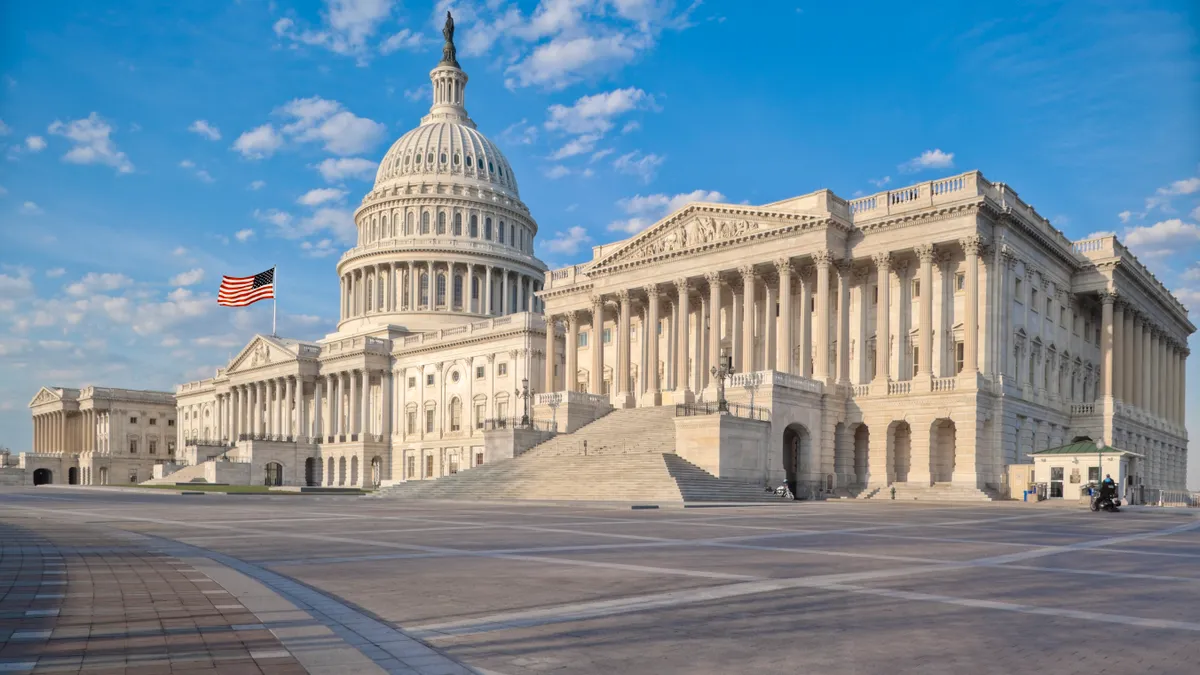Control of Congress in January remains unknown this morning, and along with that uncertainty, hang a variety of policies and appointments that experts say could help define the U.S. clean energy approach for years.
Democrats recently passed the Inflation Reduction Act and its $369 billion in incentives for renewables, energy storage, electric vehicles and more. But if Republicans retake Congress, some analysts say they may attempt to weaken the clean energy spending law.
If Republicans win the House, observers anticipate a shift toward investigations and greater oversight of clean energy spending. And with a narrow hold on the Senate, Republicans could impact the makeup of the Federal Energy Regulatory Commission.
A Republican Senate “might be the end, potentially the end, of Richard Glick at FERC,” Ari Peskoe, director of Harvard Law School’s Electricity Law Initiative, said last month.
Glick, whom President Biden appointed to lead the agency, has opposed rules that he says interfere with state energy policies, has pressed for transmission reform and worked to open wholesale markets to distributed energy resources.
Republicans anticipated a “red wave,” but may instead win just a slender majority in the House of Representatives. The Democrats, who flipped a Senate seat from Pennsylvania, might keep their narrow control of the chamber.
“Clearly, Democrats did a lot better than many pundits (and even some Dem Strategists) expected,” Frank Maisano, a senior principal at energy-focused Bracewell, said in a morning email.
Meanwhile, as control of Congress remains in the balance, clean energy and conservation supporters hailed victories in state races.
The Michigan League of Conservation Voters cheered the re-election of Democratic Governor Gretchen Whitmer. “Safe, clean drinking water and fair access to the ballot are not partisan issues,” Lisa Wozniak, the group’s executive director, said in a statement.
In Maryland, Democrat Wes Moore beat Republican Dan Cox for the governorship.
The Maryland League of Conservation Voters said it looks forward to working with the new governor. “We call on the Moore Administration to fully commit to implementing Maryland’s landmark Climate Solutions Now Act, including reducing emissions from the transportation sector and facilitating building electrification,” the group said.
In New York, activists called on Gov. Kathy Hochul, D, the first woman to lead the state and now the first woman elected to be governor, to sign a ban on crypto mining and to shut down a gas-powered Bitcoin mine run by Greenidge Generation in the state’s Finger Lakes region. The state denied the facility a key air permit renewal this summer, but the company has appealed the decision.
Hochul “must press the pause button on burning fracked gas for Bitcoin mining and sign the crypto-moratorium bill collecting dust on her desk — it’s a necessary step toward moving New York off fossil fuels and meeting our climate goals,” Food & Water Watch Senior New York Organizer Eric Weltman said in a statement.















